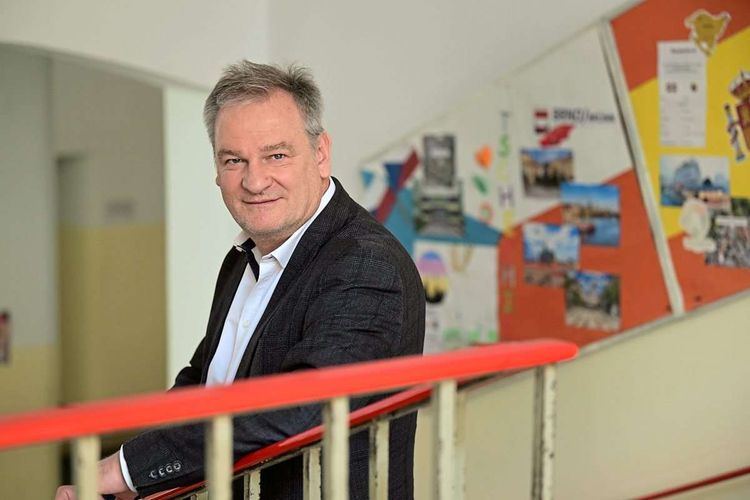A longtime principal and educator in Vienna has issued a stark warning about what he describes as a “rapid Islamization” of Austrian schools, alongside rising violence and anti-Semitic incidents.
In a recent interview with the Christian magazine Corrigenda, Christian Klar detailed his observations from nearly 40 years in education, which he has also chronicled in his book, What’s Going on in Our Schools? A School Report.
Klar called for urgent action, stating, “Islam is changing our society in ways we do not want.”
From student threats over religious beliefs to rising anti-Semitic behavior, Klar argued that issues in schools highlight a broader cultural divide. At his school in the Viennese district of Floridsdorf, Klar noted that “60 percent of students are Muslim, and 90 percent come from migrant backgrounds,” which he believes has contributed to increased pressure on non-Muslim students.
In one case, a student reportedly faced threats from classmates after allegedly insulting the Prophet Mohammed. Other incidents included the destruction of a crucifix and a Bible being spat on.
“Islamic culture has completely different basic values than we have. I believe our basic values, our open, liberal society, are the right and best way of life. This is a different form of life than the one that is brought to us. This concerns, for example, the equality of men and women, dealing with violence or defending family honor. I think we have to take a massive stand against this,” Klar told the publication.
To address these issues, Klar recommends tighter controls and clearly defined boundaries within schools. He suggests that “limits to religious freedom” might be necessary, explaining that students and teachers should have the right to practice their own beliefs without being pressured by others.
“Every person has the right to decide how they live their religion without being harassed,” he added.
“It is a feature of Islam that Muslims dictate to other Muslims who are supposedly not religious enough that they should live a more religious life, but also that non-Muslim people are persuaded to convert, or are bullied and treated badly,” Klar said, explaining that to combat this at his own school, he has implemented a no-prayer-room policy, emphasizing that the school is a neutral space.
Similarly, he has taken a firm stance on cell phone usage, even confiscating a phone when a student answered in Arabic, advising him, “For us, it means ‘Guten Tag,’ and we speak German. If you want to speak Arabic everywhere, then you have to live in a country that has Arabic as its main language.”
The Austrian principal suggested the country’s education system should limit the expression of Islamic symbols in public schools, arguing that practices like wearing the headscarf reinforce cultural divides. “We must ban the headscarf in order to protect women who do not wear it from sexual assault,” he said, adding that Islam often gets an easy ride for fear of reproach and that many often overlook the religion’s treatment of women and other liberal values.
“The church needs to be much stronger, to rely less on dialogue and instead make Christians, especially young people, more confident,” he added.
Klar’s position, which he describes as “an island of solutions” to the Islamization of the Austrian education system, has drawn some criticism. Acknowledging that some have labeled him a right-wing extremist, Klar remains resolute, arguing that maintaining Austria’s social values is essential.
“Migration of people from a certain religion and culture is one of the greatest challenges for our Western world,” he explained, calling for stricter immigration policies and more robust integration efforts.
“Of course I’m painted into this corner a bit, or at least they try to,” he said when asked about attempts to smear him as a right-wing extremist. “However, I try very hard — not only in my work with the students, but also with my colleagues — to have an appreciative, respectful and very pragmatic tone of voice, even when I am strict.”
“It’s about the matter,” he added. “In my book, I tell stories that actually happened and make suggestions about what could be done to prevent such stories. Therefore, it is more difficult to place myself in the right corner.”






